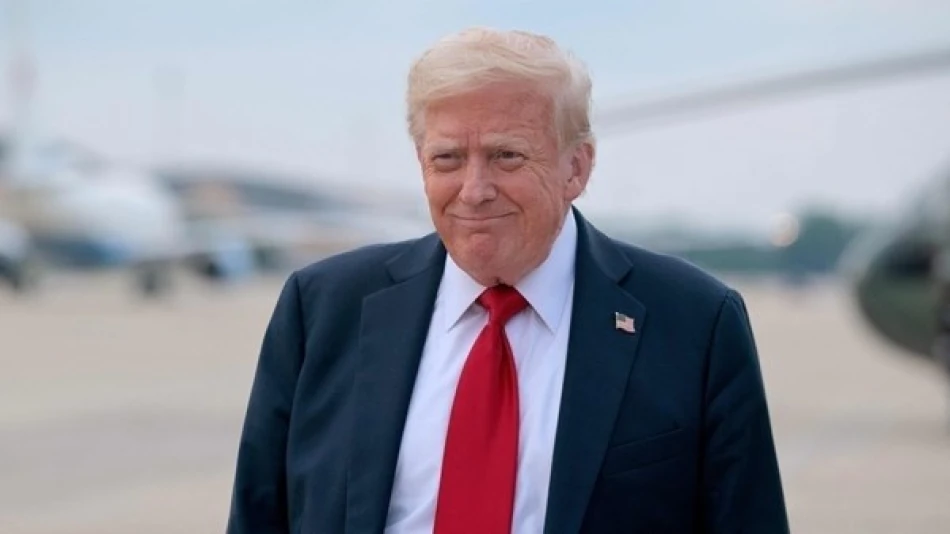
Trump Open to Dialogue with North Korean Leader, White House Announces
Trump Revives North Korea Diplomacy While Tightening Financial Screws on Pyongyang
The Trump administration is pursuing a dual-track approach toward North Korea, ramping up financial pressure through new sanctions and bounties while keeping diplomatic channels open for potential talks with Kim Jong Un. This strategy reflects lessons learned from previous failed negotiations and signals a more calculated effort to force Pyongyang back to the bargaining table on denuclearization.
Carrot and Stick: A Refined Strategy
On Thursday, the Trump administration unveiled a comprehensive package of measures targeting North Korea's illicit revenue streams, including bounties for information on seven North Korean nationals allegedly involved in financing the regime's nuclear and missile programs. The timing suggests a deliberate escalation designed to create leverage before any potential diplomatic outreach.
A White House official emphasized that President Trump "remains open to engagement with Leader Kim to achieve a fully denuclearized North Korea," despite the new punitive measures. This dual approach marks a significant evolution from Trump's earlier "maximum pressure" campaign, which preceded his historic summits with Kim in 2018 and 2019.
Learning from Past Diplomatic Failures
The three previous Trump-Kim summits—Singapore (2018), Hanoi (2019), and the DMZ meeting at Panmunjom (2019)—achieved symbolic breakthroughs but failed to produce concrete denuclearization commitments. The Hanoi summit collapsed spectacularly over disagreements about sanctions relief and the scope of North Korea's nuclear dismantlement.
The current strategy appears designed to address those shortcomings by maintaining economic pressure while leaving diplomatic doors open. Unlike the rushed approach to the Hanoi summit, this measured escalation suggests the administration is prioritizing sustainable pressure over quick photo opportunities.
Market and Geopolitical Implications
The renewed focus on North Korea carries significant implications for regional stability and global markets. South Korean defense stocks have shown sensitivity to North Korea-related developments, while the Japanese yen often strengthens during periods of heightened Korean Peninsula tensions.
More importantly, the approach signals to China—North Korea's primary economic lifeline—that the U.S. remains committed to addressing the nuclear issue through multiple channels. This could complicate Beijing's broader strategic calculations as it manages its own relationship with Pyongyang.
Testing Kim's Appetite for Renewed Talks
Trump's recent comment that he would "solve the conflict" with North Korea if one arose has fueled speculation about potential fourth summit. However, the financial pressure campaign suggests any future talks would occur from a position of increased leverage, potentially addressing previous negotiating weaknesses.
The bounty program targeting specific North Korean operatives represents a particularly aggressive escalation, directly threatening the regime's financial networks. This approach mirrors successful U.S. strategies against other sanctioned regimes, where financial pressure eventually forced meaningful negotiations.
Regional Dynamics and Alliance Considerations
The strategy also serves broader alliance management purposes. By maintaining both pressure and diplomatic openness, the administration can reassure South Korea and Japan that military options remain secondary to negotiated solutions, while demonstrating resolve against North Korea's continued weapons development.
The timing coincides with North Korea's continued missile testing and nuclear program advancement, suggesting the administration recognizes that purely diplomatic approaches without sustained pressure have proven insufficient to alter Pyongyang's strategic calculations.
Most Viewed News

 Layla Al Mansoori
Layla Al Mansoori






